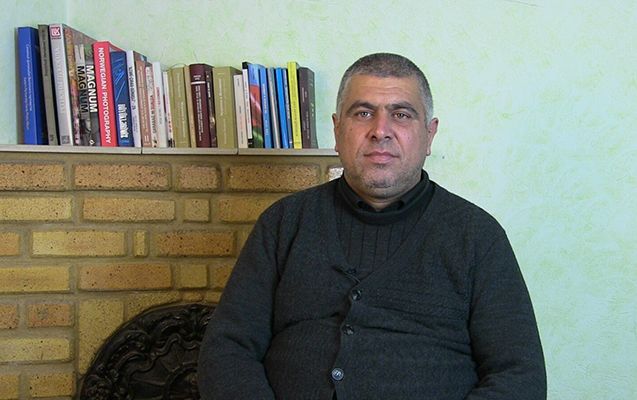The State Department is “closely following” Salayev case
Case of Alizamin Salayev
The US State Department said it would “continue to closely monitor” the case of Alizamin Salayev, an opposition activist in Azerbaijan who has been on a hunger strike for 100 days to protest his arrest.
- When the Georgian-Abkhazian conflict was closest to resolution – panel discussion & video
- Withdrawal from CSTO not on the agenda of Yerevan: What is the danger?
- Hunt for “Iranian spies” continues in Azerbaijan
Statement by State Department Spokesman
Alizamin Salayev, a functionary of the Popular Front Party of Azerbaijan (PFPA), was detained on February 7. The next day, the Garadagh District Court of Baku arrested him.
A criminal case has been initiated against him under Article 221.3 of the Azerbaijani Criminal Code (hooliganism – the use of force against the victim with the use of weapons or objects used as weapons). If the charge is proven, Salayev faces up to five years in prison. He denies the charge and demands an unconditional release.
“We are aware that Alizamin Salayev has gone on a hunger strike and we will continue to closely monitor his case,” Deputy State Department spokesman Vedant Patel said at a daily briefing, in response to a question from Turan news.
“We remain firmly committed to promoting respect for human rights and fundamental freedoms, and we call on all authorities to take steps that are consistent with Azerbaijan’s obligations under its own constitution and international agreements when it comes to human rights.”
US Embassy statement
The United States Embassy in Azerbaijan, which is following Salayev’s case closely, has called on the Azerbaijani authorities to release him, claiming unfair detention. A spokesman for the US Embassy said:
“The United States remains firmly committed to promoting respect for human rights and fundamental freedoms. We call on the authorities to take action in line with Azerbaijan’s obligations under its own constitution and international agreements to protect the rights of its citizens.
In addition, the United States reiterates its call to the Azerbaijani authorities to release all individuals who have been unjustly or arbitrarily detained for exercising their human rights and fundamental freedoms.”
“Holding a knife with one finger…”
On May 17 during trial, Alizamin Salayev lost consciousness. The session in the Garadagh district court was interrupted and an ambulance was called. After the doctors examined Salayev in the courtroom and gave him injections, the hearing continued.
During the process the testimony of two witnesses, taxi drivers who were near the scene, was heard. They stated that they had not seen Salayev at the scene of the incident.
Other witnesses are two police officers and two drug addicts. The victim himself also admitted that he had received treatment for drug addiction and was previously convicted.
The victim claimed that Salayev cut him with a knife. However, the examination concluded that he “had sustained damage the extent of which cannot be ascertained.”
According to expert examination, traces of the index finger of Salayev’s left hand were found on the knife, present at the investigation as material evidence. But as lawyer Fakhraddin Mehdiyev noted, it is impossible to hold a knife with one finger.
“I fell into a coma three times in 100 days”
On May 15, Salayev was transferred from the pre-trial detention center of the penitentiary service to a medical facility of the Ministry of Justice after falling into a coma. Through the efforts of doctors, he came to his senses. This was announced by his wife Saida Salaeva after a telephone conversation with her husband.
“He has a weak voice, a blood pressure of 60/40, severe kidney pain and constant dizziness,” she said.
Salaev is under the supervision of a doctor, he is put on drips. Despite his wife’s requests to stop the hunger strike, Salaev intends to continue the protest action.
Salaev fell into a coma three times during the 100 days of the hunger strike. His state of health is assessed as critical. He told his family and lawyers that he did not intend to end his hunger strike until he was released. “Either freedom or death,” he declared decisively.



















